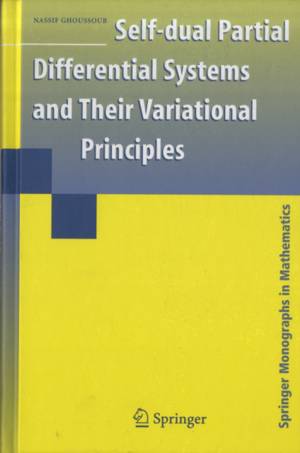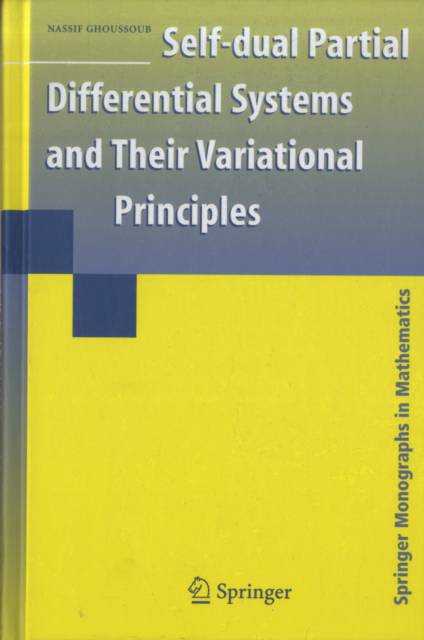
- Afhalen na 1 uur in een winkel met voorraad
- Gratis thuislevering in België vanaf € 30
- Ruim aanbod met 7 miljoen producten
- Afhalen na 1 uur in een winkel met voorraad
- Gratis thuislevering in België vanaf € 30
- Ruim aanbod met 7 miljoen producten
Zoeken
Self-Dual Partial Differential Systems and Their Variational Principles
Nassif Ghoussoub
€ 76,95
+ 153 punten
Uitvoering
Omschrijving
How to solve partial differential systems by completing the square. This could well have been the title of this monograph as it grew into a project to develop a s- tematic approach for associating suitable nonnegative energy functionals to a large class of partial differential equations (PDEs) and evolutionary systems. The minima of these functionals are to be the solutions we seek, not because they are critical points (i. e., from the corresponding Euler-Lagrange equations) but from also - ing zeros of these functionals. The approach can be traced back to Bogomolnyi's trick of "completing squares" in the basic equations of quantum eld theory (e. g., Yang-Mills, Seiberg-Witten, Ginzburg-Landau, etc., ), which allows for the deri- tion of the so-called self (or antiself) dual version of these equations. In reality, the "self-dual Lagrangians" we consider here were inspired by a variational - proach proposed - over 30 years ago - by Brezis ´ and Ekeland for the heat equation and other gradient ows of convex energies. It is based on Fenchel-Legendre - ality and can be used on any convex functional - not just quadratic ones - making them applicable in a wide range of problems. In retrospect, we realized that the "- ergy identities" satis ed by Leray's solutions for the Navier-Stokes equations are also another manifestation of the concept of self-duality in the context of evolution equations.
Specificaties
Betrokkenen
- Auteur(s):
- Uitgeverij:
Inhoud
- Aantal bladzijden:
- 354
- Taal:
- Engels
- Reeks:
Eigenschappen
- Productcode (EAN):
- 9780387848969
- Verschijningsdatum:
- 11/11/2008
- Uitvoering:
- Hardcover
- Formaat:
- Genaaid
- Afmetingen:
- 155 mm x 236 mm
- Gewicht:
- 635 g

Alleen bij Standaard Boekhandel
+ 153 punten op je klantenkaart van Standaard Boekhandel
Beoordelingen
We publiceren alleen reviews die voldoen aan de voorwaarden voor reviews. Bekijk onze voorwaarden voor reviews.











